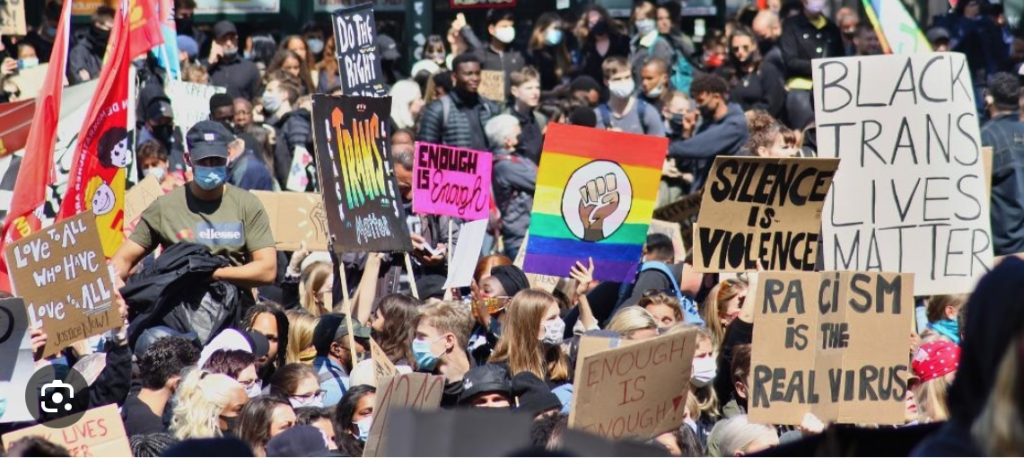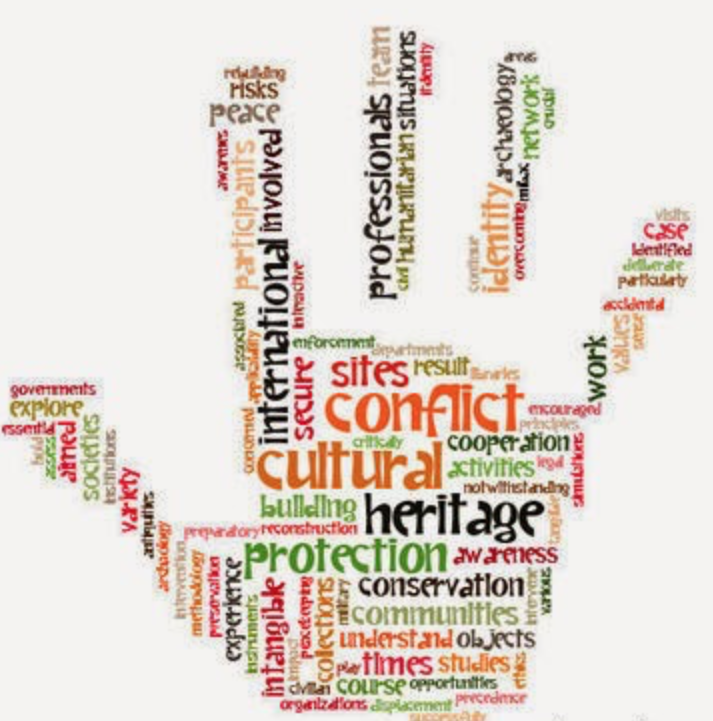IDENTITY POLITICS: a political approach based on a particular identity, such as; race, nationality, religion, gender, sexual orientation, social background, caste, and social class.
This can be conceptualised being about the presentation and representation of identities. This is founded in the shared experiences of injustice of members of certain social groups, typically aiming for political freedom (at times wishing minority groups) within a society where they are not able to exist freely, attempting to make others understand what it is like for them in a day-to-day life.
The second half of the twentieth century saw the emergence of large-scale political movements—second wave feminism, Black Civil Rights in the U.S., gay and lesbian liberation, and the American Indian movements. Identity politics is greatly connected to the idea that some social groups are oppressed which can lead to stereotyping, violence, appropriation of identities or even erasure of them. The term was coined by the Combahee River Collective in 1977 and gained use in the 1980s, gaining currency with the emergence of social activism, manifesting in various dialogues within the feminist, American civil rights, and LGBT movements, disabled groups, as well as multiple nationalist and postcolonial organizations, for example: Black Lives Matter movement.

For example, in more recent years, the Black Lives Matter movement gained immense news coverage of people of all identity speaking up on the injustice that this group of people face within a society. This movement seeks to highlight racial violence and police brutality within society against black people, with the hashtag created in July 2013. This formed after the after the acquittal of George Zimmerman in the shooting death of a teen Trayvon Martin 17 months earlier in February 2012. It became nationally recognised for street demonstrations following the 2014 deaths of two more African Americans, Michael Brown and Eric Garner, being only some of the protested names of people who died at the hands of racial violence by the police. In the summer of 2015, Black Lives Matter activists became involved in the 2016 US election. The originators of the hashtag and call to action, Alicia Garza, Patrisse Cullors, and Opal Tometi, expanded their project into a national network of over 30 local chapters between 2014 and 2016. Street demonstrations and public protests emerged of people, regardless of who they were, standing up for this cause.
CULTURE WARS: a type of conflict which occurs when different beliefs and cultures clash against one another, the struggling for dominance of their personal values. It commonly refers to topics on which there is general societal disagreement and polarization in societal values. This can occur on a micro or macro scale, able to give explanations for violence or even wars.
Cultural conflict is likely to emerge when the rules and values of one cultural group are substantially different from another, and members of the cultures come in contact with each other. This is commonly also phrased as a culture clash.
This term is usually used in western politics concerning issues such as homosexuality, transgender rights or racial viewpoints based upon personal views, morals or lifestyles. An example of cultural conflict is the debate over abortion in the United States, where it is legalised in some states however illegal in others. Ethnic cleansing is another extreme example of cultural conflict. Wars can also be a result of a cultural conflict; for example the differing views on slavery were one of the reasons for the American Civil War.


Excellent blog post, great that you care enough about Identity Politics and Culture Wars and wanted to signal that.